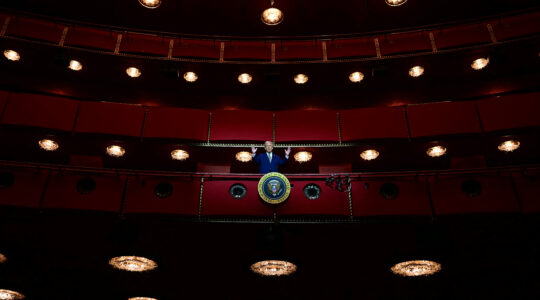Jeffrey Goldberg lamented the other day that the AIPAC policy conference had too many speakers from the center-right and not enough from the left. One exception he did cite was Ghaith al-Omari, advocacy director for the American Task Force on Palestine, who spoke Sunday afternoon on a panel entitled "Prognosticating Peace: Are Direct Israeli-Palestinian Talks in Sight?"
And al-Omari had an interesting perspective on the recent flareup in tensions between the U.S. and Israel, believing there was an important message in the episode for Palestinians, as well.
"If the U.S. is willing to pick a fight with Israel," he said, then the Palestinians "are going to be next" in line for a tongue-lashing.
Al-Omari added that he was not much of a fan of upcoming "proximity talks," but said perhaps they can be used as a "cover" to get to direct talks down the road.
The Washington Institute for Near East Policy’s David Makovsky agreed that "promxity talks" were a step backward, but also emphasized that the U.S. should be careful not to "set the bar too high"– because "hail Mary passes," such as asking for a full settlement freeze, don’t work. Taking the footbal metaphor further, he added that "we need a screen pass" to take the ball down the field gradually.
Makovsky also pointed out that the Palestinian Authority had been taking important step in building a civil society, although the delegates are "not going to read about it in your newsletters." For instance, he said the Palestinian Authority had fired 1,100 schoolteachers for being Hamas sympathizers and removed 300 imams from mosques for inflammatory rhetoric — and the P.A. is "doing it because it’s good for them."
JTA has documented Jewish history in real-time for over a century. Keep our journalism strong by joining us in supporting independent, award-winning reporting.





